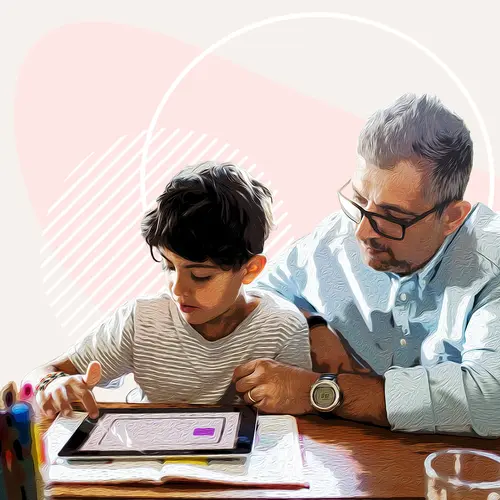Medication can be a helpful tool for treating ADHD (attention deficit hyperactivity disorder) symptoms in children. But medication can cause side effects.
More common ADHD medication side effects such as appetite loss, headaches, sleep issues, and moodiness are usually mild and nothing to worry about. Rarely, children have more serious side effects like tics or hallucinations from these medicines.
Often a medication change is enough to stop these side effects. Whenever your child starts on a new ADHD drug, here are some things to watch out for and report to your child's doctor.
Tics
Tics are quick, sudden, and uncontrollable movements, often in one part of the body. A repeated eyelid blink or head twitch are examples of tics.
Some stimulant medications cause tics as a side effect. In kids who already have tics, these drugs, especially dextroamphetamine, can make tics worse.
Tics can be upsetting to both you and your child. An easy fix is to ask your doctor to switch your child to a different stimulant. You can also try one of these nonstimulant medications that don't cause tics:
- Atomoxetine (Strattera)
- Clonidine (Catapres, Nexicon)
These medicines might improve tics in kids who had them to begin with.
Personality Changes
Stimulants shouldn't change your child's personality. But they can have a flattening or zombie-like effect on some children. Other kids may become moody or irritable while on their meds. These mood-related side effects usually appear soon after a child starts taking a new drug. They are signs that the dose is too high.
A small number of kids will continue to have personality changes on a lower dose. Switching to another type of ADHD medication should stop this side effect.
Heart Problems
Stimulants can slightly increase heart rate and blood pressure. But the risk of serious heart problems is low. In one study, stimulants raised the odds of heart trouble in children and teens. Heart problems were still rare overall in that study. But kids who took stimulants were twice as likely to have trouble as kids who didn’t. On the other hand, some studies don’t find any increased risk.
To be safe, your child's doctor should do a physical exam and medical history before starting treatment with a stimulant drug. If your child does have a heart problem, a nonstimulant medication may be a safer option.
Psychosis
Kids who take stimulant drugs to treat their ADHD have a slightly higher risk for psychotic episodes. Those are breaks from reality. In one study, 1 out of 660 teens and young adults had psychotic symptoms such as hallucinations and hearing voices. The risk was about twice as high with amphetamines like Adderall and Vyvanse as it was with methylphenidates such as Concerta and Ritalin.
Though this side effect is rare, it may be a good idea for your doctor to test your child before prescribing one of these drugs. Kids with a family or personal history of psychosis may want to try a nonstimulant medication instead.
What to Do
Whenever your child gets a prescription for a new ADHD medication, talk to their doctor about the possible side effects and how to manage them. Let the doctor know about any new side effects your child has, even mild ones. The doctor may be able to adjust the dose or switch your child to a different medication to prevent these effects.

